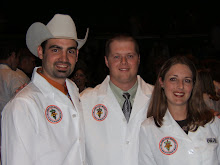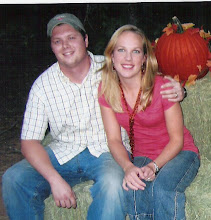It is 11:30pm. I have just gotten out of the shower and am getting ready to go to bed when the pager begins shrieking loudly from the nightstand. Horse with colic. Needs a vet to come out, is the message on the text display. With a groan I pick up the phone and make the call.
“This is Dr. Carpenter from the T-Town Veterinary Clinic. Do you have a horse that is colicking?” I ask.
A woman’s voice answers in a slow drawl with a pronounced accent, “Yeah, Doc. This is Jenny Jones. We take all our animals to yall. We have this mare that’s been colicking. She won’t eat and she’s been down rollin’ and stuff.”
“Yeah, that sure sounds like she could be colicking,” I say. “Do you need me to come out and take a look at her?”
“Yeah, I think you should,” she says. “We done give her some Banamine a couple of times, and she seems to be a little better, but we’d sure feel better if you took a look at her.”
“How much Banamine have you given her?” I ask.
“About 40cc. We just give it to her in the muscle,” is the answer.
I’m a bit taken aback as this is close to 3 times the recommended dosage for this particular painkiller. “Well that should be plenty. If you would, don’t give her anymore before I get there, okay? How do I get to your place?”
“Do you know where Banner Hill’s at?” she asks.
I grew up and have lived in this area my entire life and I am amazed at how many landmarks and locations people use that I have never heard of. “I’m afraid not, can you give me directions?”
The lady proceeds to give me directions for a trip that is at least a 45 minute drive from my house. I tell her that I will need to stop by the clinic on the way and pick up a few supplies, but that I can probably be there in a little over an hour. I hang up the phone and begin to get dressed.
Emily is already in bed when I walk into the bedroom. “Are you going to have to go in?” she asks.
“Yeah,” I say. “I’ve got to go look at a horse that is colicking out in the country.”
“Do you think I could help if I went with you,” she asks, sitting up in bed. “At least I could talk to you and keep you awake as you drive.”
“I’d love the company,” I reply as I pull on my boots. “But I need to leave pretty quickly. Can you be ready soon?”
She dresses hurriedly and we load up in the truck and head out on the call. It is a relatively cool night for early June and we roll down the county roads with the windows down, listening to red dirt country on the stereo. I’m a bit apprehensive as this is the first colic case that I have ever seen on my own. In vet school while I was on the equine surgery rotation, we were allowed to do the initial physical examination on colic cases that were referred to the teaching hospital, but as most of these cases ended up going to surgery, they were quickly out of our hands.
As we pull into the client’s driveway, my head lights illuminate a small crowd of at least ten people lounging around the front yard. A woman in a stained tank top holds the lead rope of a geriatric bay mare that is standing three-legged, dirt and mud caked to its back and sides. Half of the bystanders are shirtless and most are holding beer cans. I will soon find out that this is a common scenario that I will encounter time and time again on farm calls. Veterinary emergencies constitute a legitimate form of entertainment in rural Oklahoma, bringing family members and neighbors alike crawling out of the woodwork for a good look to see what the vet will do. As with most spectator sports, drinking just makes the show that much more enjoyable. I warily take in the crowd as I park the truck. Okay we’re about five seconds away from hearing Dueling Banjos out here. What the hell have I gotten into this time? Great call to bring the wife along on Colby!
I park the truck and Emily and I make our way across the yard towards the crowd, carrying my medical trays and equipment.
I walk over to the woman holding the horse and stick out my hand, “I’m Dr. Carpenter. I assume from all the mud that this is the mare that’s been colicking.”
“Yeah Doc,” says Mrs. Jones, “She was really rolling and carrying on a while ago, but she seems to have calmed down a lot since we gave her the Banamine, but we just wanted someone to take a look at her to be sure.”
I’d hope so after 40 cc of the stuff! Hope her kidneys don’t burn out. “Yeah, I really wouldn’t recommend giving more than 15 cc of Banamine, but let me take a look at her and we’ll see how she’s getting along,” I say, getting out my stethoscope.
I commence with my physical exam, listening to her heart rate and respirations, then moving farther back to listen to the rumblings of the horse’s guts or a lack thereof that would indicate a colic. Colic is a generic term that incorporates any condition that can cause abdominal pain in a horse, ranging in severity from simple gas and indigestion to a ruptured intestine. Equine medicine, more so than most other aspects of the industry, still holds on to many such old-school terminology, and it is essential that one know and use them in order to be taken seriously by horse owners “in the know.” Talking the talk is as important in how competent one is perceived as a “horse vet” as being able to walk the walk. I conclude my examination by taking the mare’s temperature with a rectal thermometer and checking the color of her gums by flashlight.
“Mrs. Jones, everything is checking out pretty normally so far.” I say. “She has good gut sounds all the way around, and she has a normal heart rate, which usually indicates that they are not in any discomfort. The color of her gums is good and pink, so I’m not seeing any evidence of dehydration or shock, and her temperature is normal. I would like to pass a tube on her to see if she has any gas on her stomach, just to be sure.”
I walk back to my truck to get my twitch, which is an ax handle with a short loop of rope tied to one end. I place the loop around the mare’s upper lip and begin to twist the ax handle, tightening the loop around the lip. This serves to focus the horse’s attention and releases endorphins which aid in restraint, kind of like holding a cat by the scruff of its neck. This is necessary as I begin to pass a ten foot long rubber tube up the mare’s nostril, through her nasal sinuses to her throat, where I must be careful to allow her to swallow the end of the tube before passing it down her esophagus and into her stomach. It is important to ensure that the tube is down the esophagus and not the trachea for what is to follow. Despite the twitch around its lip, the horse tries to throw her head up in the air and paws the ground in agitation at the invasiveness of the procedure. It takes several attempts before the mare finally swallows and I can finish passing the tube. As these events take place, the crowd of spectators begin to drift closer.
“Have you ever done this before?” asks a middle-aged man with skinny legs and a prominent beer gut, making him reminiscent of a pregnant pelican.
“Quite a few times, actually,” I reply grimly. “You just have to wait for the horse to swallow the end of the tube. If they don’t swallow it, you can’t go any farther. Ahh, there she goes. See, you can see the end of the tube moving down that groove on the left side of her neck there. If you can see it there, you know you are in the right spot.”
As the tube passes into the stomach, a small amount of gas escapes from the end of the tube I hold in my hand. I sniff it gingerly, assessing the faintly sweet aroma of fermented grass. I then place the end of the tube in my mouth and apply suction, attempting to siphon any liquid that may be on the stomach. Some years later I was to perform this particular procedure out on the farm by truck headlight and would fail to see the stomach contents coming back down the tube and was rudely surprised by a mouthful of the acidic fluid. The examination was then temporarily halted while I dry-heaved in the bushes. This night, however I am more fortunate as no fluid is obtained.
“Whatcha doin’ that fer?” asks a rather unkept looking woman in the crowd wearing a tube top.
“Horses are unable to vomit,” I explain. “So I am checking to see if there is any reflux on the stomach, which could indicate a blockage. I’m not finding anything, though. A little bit of gas, nothing else. I’m going to go ahead and give her a gallon of mineral oil through the tube. That should act as a laxative and coat her GI tract to help relieve any indigestion.”
This is the reason that I was so careful to make sure that the tube was down her esophagus and not her trachea. Putting a gallon of mineral oil down the trachea and into the lungs tends to do bad things to a horse. Like make them dead. The owners tend to frown on that sort of thing, so I try to avoid that if at all possible. Emily opens the bottle of mineral oil and hands me a half liter dose syringe that I use to pump the oil down the tube and into the horse’s stomach. Afterwards I withdraw the tube and take the twitch off the mare’s lip. She snorts in appreciation and starts grazing in the yard.
“Well guys,” I say, gathering my equipment. “I think she will be fine. I’d keep an eye on her for the next hour or so and definitely check her in the morning. I wouldn’t give her any feed tonight, just hay and water, and start her back on a half ration tomorrow. And I’d probably keep an eye on where you gave her all that Banamine. Sometimes that can cause abscesses if given in the muscle.”
Emily helps me load the gear back in the truck and I make out Mrs. Jones’ bill. She pays and thanks me for coming, apologizing for disturbing my evening.
“Glad to help ma’am. That’s what they pay me for,” I say as I start the truck.
As we are heading back towards the house, Emily laughs about the crowd of onlookers. “You’d think they would have something better to do than stand around gawking at a sick horse,” she says.
“I guess there just wasn’t that much going on at Banner Hill tonight,” I say ruefully. “I’m just glad to get that out of the way. I’d been dreading seeing a colic because of the whole passing the tube thing. Glad it went well. Man am I ready for bed.”







Don't you miss the most cheerful vet tech going out on calls with you?
ReplyDeleteEnjoying the workings of your master piece so far. I did get a lil' sick to my stomach at one point when you were talking about ingesting some of that lovely stomach acid....I'm not hungry for dinner anymore...Lol...Overall, a great read!
ReplyDelete